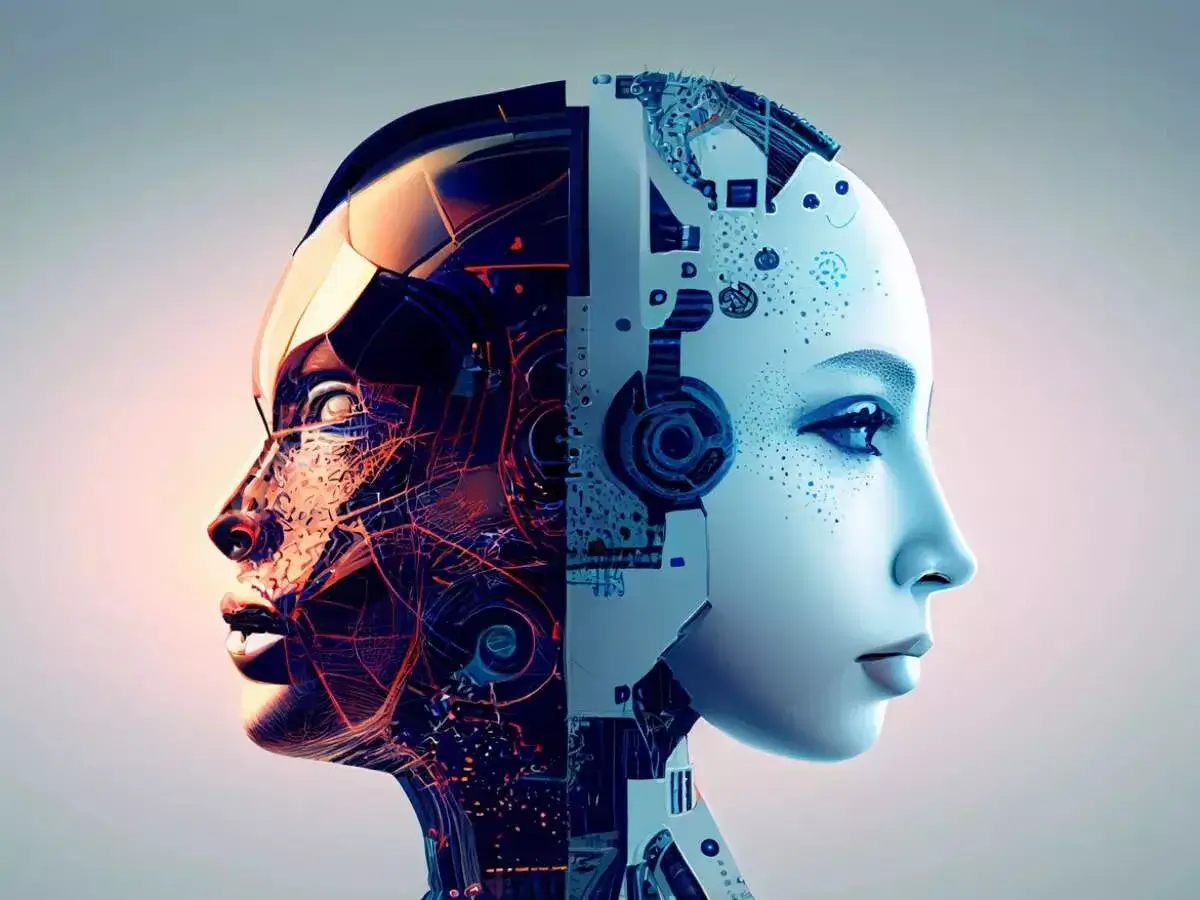The journey of Artificial Intelligence (AI) goes beyond its beginnings in science fiction, integrating seamlessly into our daily routines. The impressive advancements in AI technology have not only changed how we interact with machines but have also brought about significant changes in industries and the very essence of human life. Within these pages, we set forth on an exploration, delving into the profound impact AI exerts on the smallest facets of everyday life, navigating through its expansive realms of influence.
In the span of recent years, the progression of artificial intelligence has been truly extraordinary. The concept of AI, entailing the replication of human intelligence in machinery, has transitioned from a mere theoretical notion to a palpable and influential entity that molds our everyday rituals.
Understanding AI: Beyond the Hype
Fundamentally, AI involves replicating human intelligence processes within machines, specifically computer systems. Unlike traditional computer programs, AI systems can analyze data, learn from it, and make informed decisions or predictions. This enables AI to perform tasks that were once considered exclusive to human cognition.
AI in Communication: Bridging Language Barriers
One of the most noticeable impacts of AI in everyday life is its role in communication. AI-powered language translation tools have broken down language barriers, making cross-cultural interactions smoother. Whether through text or speech, AI algorithms can translate languages in real-time, facilitating global communication like never before.
Personal Assistants: Aiding Daily Tasks
Personal assistants like Siri, Alexa, and Google Assistant have become household names, turning AI into an integral part of our routines. These digital helpers respond to voice commands, assisting in tasks ranging from setting reminders to providing weather forecasts. This seamless integration of AI technology into our daily lives showcases its utility and convenience.
Healthcare Revolution: Diagnosing with Precision
The healthcare sector has undergone a profound transformation due to AI’s impact. Cutting-edge machine learning algorithms possess the capability to sift through extensive medical data, aiding medical professionals in the identification of diseases with heightened precision and efficiency. Moreover, AI is used in predicting disease outbreaks and optimizing healthcare processes, contributing to better patient care.
Education Transformed: Personalized Learning
AI is reshaping the landscape of education through personalized learning experiences. Adaptive learning platforms use AI algorithms to cater to individual student needs, offering tailored educational content and pacing. This not only enhances understanding but also promotes engagement and motivation among learners.
Business Operations Streamlined
Businesses are leveraging AI to streamline operations and enhance customer experiences. AI-powered chatbots provide instant customer support, while data analysis helps companies make informed decisions. Retailers, for instance, use AI algorithms to predict consumer preferences, enabling more targeted marketing strategies.
Smart Homes: A Connected Lifestyle
The amalgamation of AI with intelligent home devices has ushered in an era characterized by enhanced convenience and effectiveness. Through AI-driven applications, remote control of smart thermostats, lighting setups, and security cameras has become a reality, shaping a more streamlined and technologically empowered lifestyle. These systems learn from user behavior, adapting settings to create a comfortable and secure living environment.
Transportation Revolutionized: Self-Driving Vehicles
The landscape of the automotive sector has undergone a substantial metamorphosis with the introduction of self-driving vehicles empowered by AI. Equipped with sensors, cameras, and intricate algorithms, these automobiles navigate roadways with heightened precision, mitigating the likelihood of accidents and amplifying transportation efficiency. The transformative potential of autonomous vehicles in redefining urban mobility is profound and far-reaching.
Ethical Considerations: Balancing Progress and Responsibility
As AI penetrates deeper into everyday life, ethical considerations emerge. Issues such as data privacy, algorithmic bias, and the potential loss of human jobs require careful consideration. Striking a balance between technological advancement and ethical responsibility is essential to ensure AI benefits all of society.
Future Horizons: AI’s Promising Trajectory
The trajectory of AI’s growth is both exciting and promising. As innovation continues to progress, the realm of AI holds the potential to spark revolutionary changes in sectors like robotics, energy generation, and the exploration of outer space. As the evolution of AI persists, its potential applications may stretch beyond our present conceptions, challenging the limits of human potential and capabilities.
In Conclusion
The emergence of Artificial Intelligence in our daily existence stands as a testament to human creativity and forward-thinking. From communication to healthcare, education, business, and even the way we manage our homes, AI has permeated various domains. As we traverse through this intricate technological terrain, it becomes paramount to harness the potential of AI while maintaining a vigilant awareness of its societal implications and our ethical obligations. The path ahead unquestionably revolves around AI, and the decisions we make today profoundly shape our voyage into that AI-driven future.
FAQs
Q: What is Artificial Intelligence?
A: Artificial Intelligence entails replicating human intelligence in machines, empowering them to execute tasks that traditionally demand human cognitive capabilities.
Q: How does AI impact healthcare?
A: AI improves healthcare by aiding in quicker and more accurate medical diagnoses, analyzing medical images, and suggesting treatment options.
Q: Can AI replace human jobs?
A: Although AI has the capacity to automate specific tasks, its primary objective is to enhance human capabilities rather than completely supplant them.
Q: Are there any ethical concerns with AI?
A: Indeed, ethical considerations encompass matters of privacy, algorithmic biases, and the potential displacement of jobs.
Q: What does the future hold for AI?
A: The horizon for AI holds promise, envisioning potential progress in realms like robotics, energy, space exploration, and diverse other disciplines.
